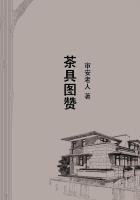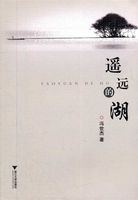In vision there are the rays of light; the reflection and refraction of them, the picture on the retina, an action along the optic nerve to the seat of sensation, an action thence we know not how to the brain, an action in the cells which constitute the gray matter surrounding the brain, and then, or perhaps not even then, but only after some farther steps, the perception of the object, say a tree, from which the rays of light come.How it is asked can perception be immediate, when all these media are evidently implied? To this the followers of Hamilton might reply, that he never thought of disputing the existence of steps between the external object and the percipient mind, which, when it comes into exercise, contemplates the tree, and not an image or representation of it in the mind, in the body or out of the body.But the objection may now take a somewhat different form.It may be urged that, after all, we do not see the tree, {434} and it will be asked, What do we perceive intuitively? Certainly not the brain cells, or the influence transmitted to them, or the action of the sensorium, or even the image on the retina, or the coats and humors of the eye, or the vibrations that constitute the light.What, then, do we perceive? Hamilton.allowed that it was not the distant tree; for he adopted the Berkleian theory of vision, and held that we are immediately percipient of distance by the eye.What, then, do we see immediately? Hamilton was helped here by another doctrine of his, that the mind may be said to be indiscriminately in the brain and in the whole nervous apparatus, so long as it keeps up its connection with the centre; and by the further doctrine that our primary perceptions are of our bodily frame and of objects in contact with it.In taste, smell, and hearing, we perceive the palate, nostrils, ear; in feeling, our extended frame; and by the muscular sense an extra-organic object resisting our energy.The proper account is, that in sense-perception, when formed, we perceive our frame as affected or objects affecting the frame.I am ready to allow as many processes as the physiologist can prove to exist in the nervous system and brain prior to perception.But I hold that perception is a mental and not a bodily act.We hold further that nervous action, and brain action and cellular, do not constitute perception, which is knowledge.I assert that, while there may be bodily antecedents, they are not properly the causes of perception or any proper mental act, such as the perception of beauty or of moral excellence.I may add that I have no objections to find them represented as the occasions or conditions of sense-perception, not therefore of our higher mental acts.If we hold, as I hold, that in creature action all causes are concauses, that is composed of more than one agent, then the brain action may be an agent, a necessary but inferior agent, in producing perception, the main agency being a capacity of the mind.Iam inclined to go a step further, and to allow that the defenders of natural realism might admit for the sake of argument, and admit out and out if proven, that there is a process of reasoning in every perceptive operation, even in such an operation as perceiving snow as a colored surface --just as all admit that there is inference when we place that snow on a mountain too at a distance.But still they will insist that when mind perceives matter, it {435} perceives it as out of itself, and as extended; that it cannot infer this from a nervous action, or from an unextended sensation or impression within the mind; and that the perception of an external, extended object, be it in the body or beyond the body, must be immediate, intuitive, and original.
II.Sir William Hamilton has been much landed for the view which he has given of Consciousness.In this I cannot concur.He avows that he uses consciousness in two distinct senses or applications.First, he has a general consciousness treated of largely in the first volume.This he tells us cannot be defined.(Vol.I.P.158.) " But it comprehends all the modifications, -- all -- the phenomena of the thinking subject." (p.183.) ',Knowledge and belief are both contained under consciousness." (p.191.) Again, "consciousness is co-extensive with our cognitive faculties." " Our special faculties of knowledge are only modifications of consciousness." (P.207.) He shows that consciousness implies discrimination, judgment, and memory.




